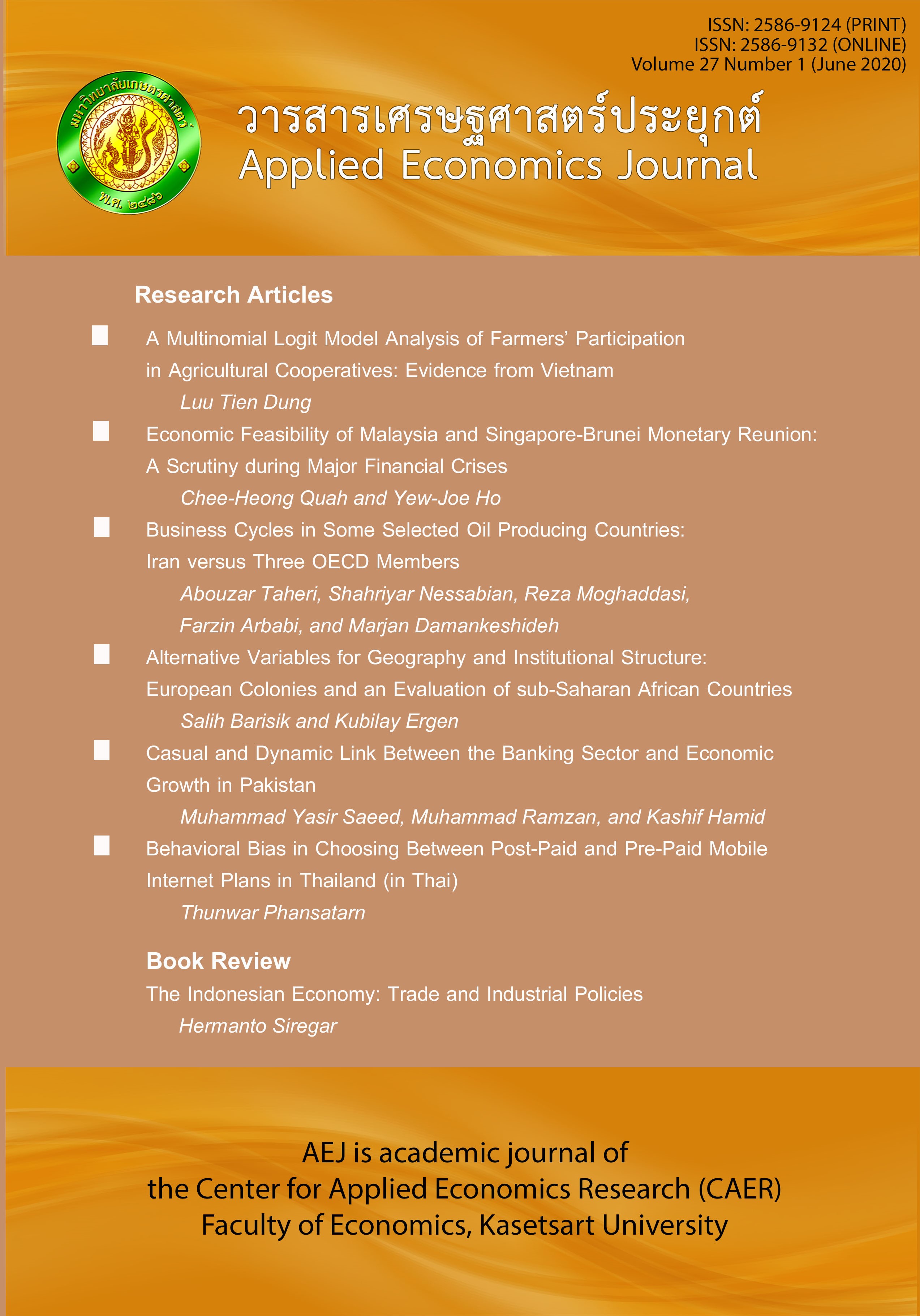Behavioral Bias in Choosing Between Post-Paid and Pre-Paid Mobile Internet Plans in Thailand
Main Article Content
Abstract
A mobile Internet users’ survey for Over-the-Top (OTT) service in Thailand shows that most users choose a post-paid plan compared to a pre-paid plan, which contrasts with total mobile user preferences in the industry. The average revenue per user for post-paid users is also higher than for pre-paid users, but this is consistent with the industry overall. This information may reveal behavioral bias among Thai mobile Internet users. This research was undertaken to study the behavioral bias in choosing mobile Internet plans. The survey was conducted by Office of the National Broadcasting and Telecommunications Commission (NBTC) in 17 provinces, covering all regions in Thailand. Logit regression analysis shows that users have increased probability of choosing a post-paid plan. User behavior reveals a bias toward post-paid plans, which offer a flat rate. Two policy implications from this study are that inexpensive flat-rate plans can be used to promote growth in mobile Internet service, and that support for new entrants can be offered by providing plans that rely on user behavior.
Article Details
The paper is published under CC BY-NC-ND, in which the article is freely downloaded and shared in its original form non-commercially and its citation details are identified.
References
Cartwright, E. (2018). Behavioral economics (3rd ed.). New York: Routledge.
DellaVigna, S., & Malmendier, U. (2006). Paying not to og to the gym. American Economic Review, 96(3), 694-719.
Greene, W. H. (2002). Econometric analysis. (5th ed.). New Jersey: Pearson Education.
Hosmer, D. W., Lemeshow, S. A., & Sturdivant, R. X. (2013). Applied logistic regression (3rd ed.). New York: Wiley.
Kramer, J., & Wiewiorra, L. (2012). Beyond the flat rate bias: The flexibility effect in tariff choice. Telecommunicaitons Policy, 36(1), 29-39.
Kridel, D., Lehman, D., & Weisman, D. (1993). Option value, telecommunications demand, and policy. Information Economics and Policy, 5(2), 125-144.
Lambrecht, A., & Skiera, B. (2006). Paying too much and being happy about it: Existence, causes, and consequence of tariff-choice biases. Journal of Marketing Research, 43(2), 212-223.
Maille, P., & Tuffin, B. (2014). Telecommunication network economics: From theory to applications. Cambridge: Cambridge University Press.
Office of the NBCT. (2019a). Direction and trend of Over-the-top (OTT) adoption impact on the spectrum bandwidth in Thailand’s telecommunication business. Bangkok: Office of the NBTC. (In Thai)
Office of the NBCT. (2019b). The first quarter report of 2020 in telecommunication market. Telecommunications Policy and Resources Management Bureau, Telecommunication Branch. Bangkok: Office of the NBTC. (In Thai)
Santhi, C. (2016). Empirical analysis of prepaid and postpaid mobile subscription in Thailand. NBTC Annual Review 2016, 285-309. (In Thai)
Srinuan, C. (2015). Over-the-Top (OTT): Beginning of war in the new ICT ecosystem, Information Technology Journal, 11(1), 74-81. (In Thai)
Sujarittanonta, P. (2017). Behavioral Economics: Decision under certainty. Lecture Note in Behavioral Economics. Faculty of Economics, Chulalongkorn University.
Thaler, R. (1983). Transaction utility theory. Advances in Consumer Research, 10, 229-232. Retrieved from http://www.acrwebsite.org/volumes/6118/volumes/v10/NA-10
Train, K., McFadden, D., & Ben-Akiva, M. (1987). The demand for local telephone service: A fully discrete model of residential calling, The RAND Journal of Economics, 18(1), 109-123.


